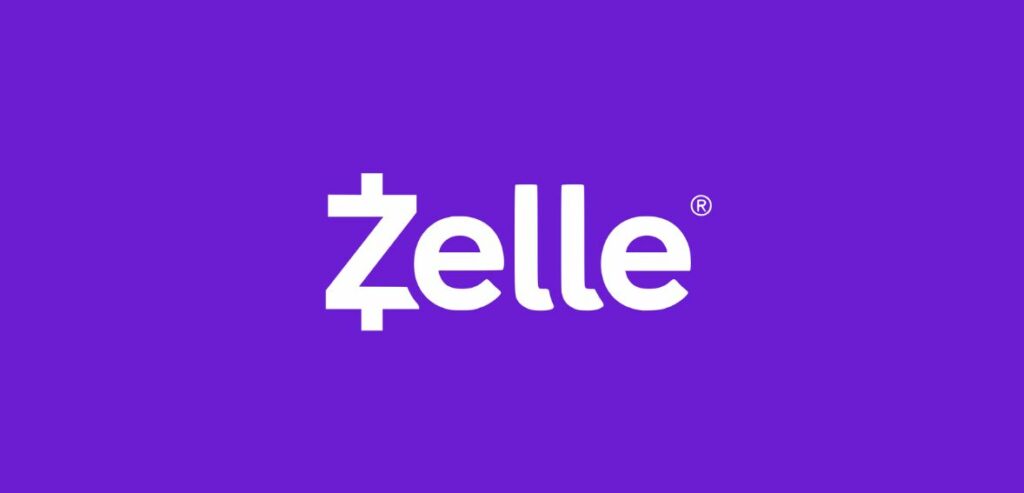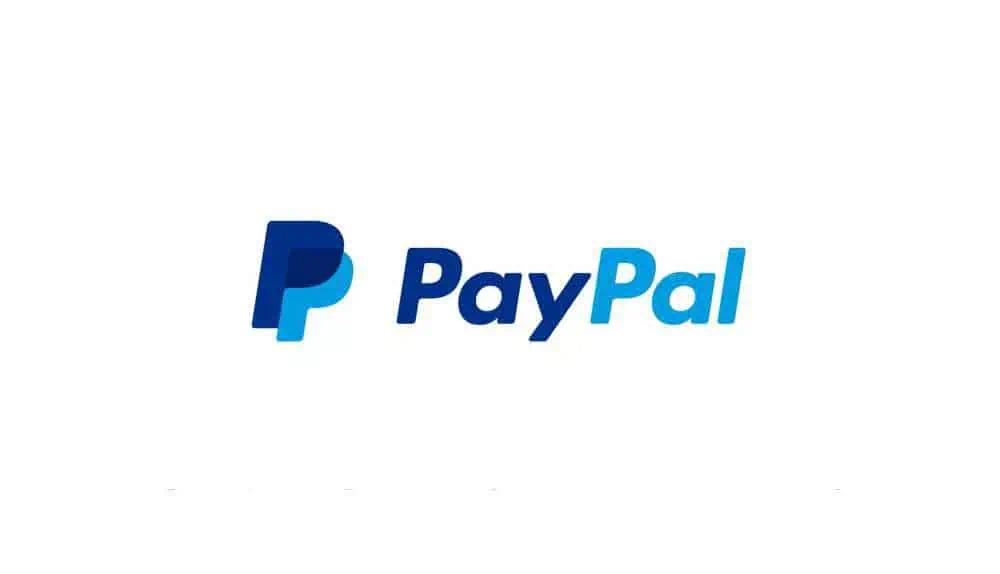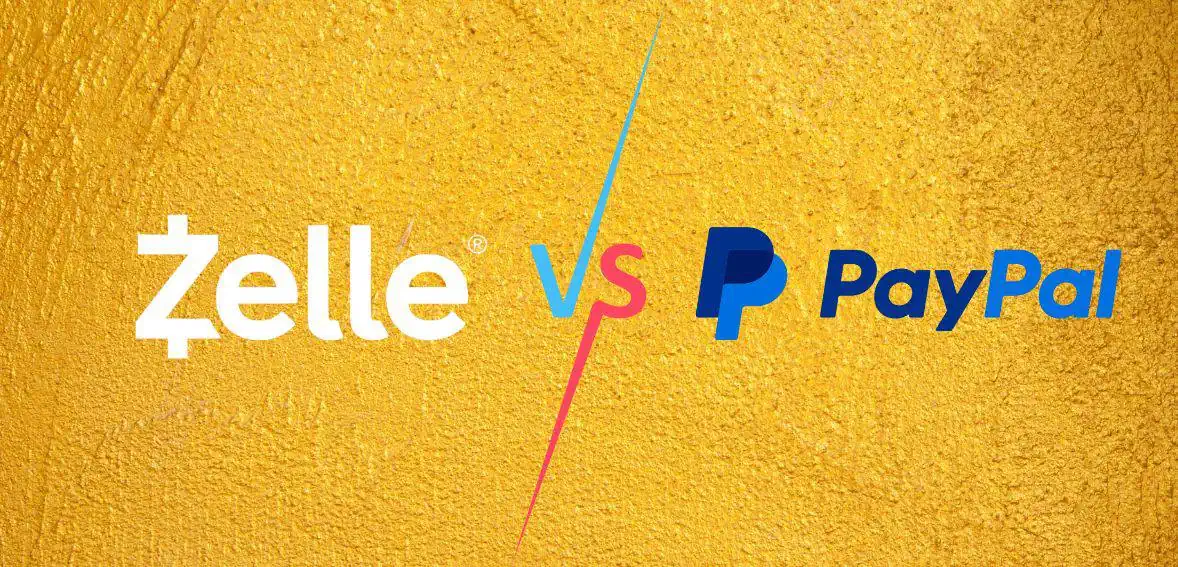For small business owners, it is always confusing to choose between Paypal and Zelle. Out of Paypal vs Zelle which is better? Let us find out today.
PayPal is one of the world’s most renowned online payment service providers (PSPs). Offering a swift and user-friendly experience, a PayPal business account caters to businesses at various stages, facilitating the acceptance and processing of credit card payments, debit card payments, and more. Its expansive reach spans over 25 currencies and encompasses transactions from 200+ countries.
On the other hand, Zelle operates as a real-time P2P transfer service, facilitating seamless payments between consumers through a network of pre-vetted banks. Accessible via your bank’s online banking app or the dedicated Zelle app, users can send or request money using email addresses or phone numbers associated with their bank accounts. Zelle notifies the recipient through text or email about the payment or request.
The primary distinction between Zelle and PayPal lies in their fee structures. Zelle is an entirely free service, devoid of charges for sending or receiving money. In contrast, PayPal presents a complex fee structure with numerous variables. This article pits Zelle and PayPal against each other, providing an overview of each money transfer service.
An Overview Of Zelle For Business

Image source
Zelle, a digital payment platform, streamlines sending and receiving money for businesses and customers. Despite the prevalence of mobile wallets and NFC mobile payments, Zelle might not be on the radar for many businesses. Established by Early Warning Services in 2016 and headquartered in Arizona, It offers US-based P2P and B2B mobile services. Users can effortlessly send and receive money using only the recipient’s mobile phone number or email address.
Aiming to reduce reliance on paper checks and cash transactions, Zelle ensures instant transactions, even sending automated reminders to customers about impending payments. With partnerships with over 1,800 financial institutions, Zelle has become a go-to choice. While Zelle’s P2P service is available to anyone through their bank or the Zelle app, not all banks support Zelle for business transactions.
To leverage Zelle for your business bank account, your financial institution must explicitly include it in its business banking services. Notably, Zelle’s digital payment network processed nearly $200 billion in transactions between the first two quarters of 2023, showcasing its consistent adoption by consumers and businesses.
Features Of Zelle
- Simplified Fund Transfers with Zelle
It’s effortless. Utilizing only your business’s US mobile number or email address, customers can seamlessly use Zelle to make payments directly from their banking app—no need for additional hardware. Zelle is particularly the best option for self-employed or freelancers as it enables you to receive payments on the fly, eliminating the need for a trip to the bank.
- Zero-Charge Transactions:
Zelle stands out as a cost-effective solution for fund transfers, featuring a no-transaction-processing-fee policy, especially with select banks. This fee-free advantage spans a network of major US banks, positioning Zelle as an accessible and economical choice for a diverse range of users.
- Protected and Assured Transactions:
In addition to its cost-effectiveness, Zelle strongly emphasizes security, ensuring very secure and FDIC-insured transactions. Users can have confidence in the security of their financial transactions, enhancing the appeal of fee-free transfers. The FDIC-insured status reinforces Zelle’s dedication to safeguarding users’ financial well-being.
- Effortless Contactless Transactions Across Banks:
Beyond its financial benefits, Zelle distinguishes itself as a contactless payment method widely available across major U.S. banks. The ease of contactless transactions aligns seamlessly with contemporary preferences for efficient and hassle-free payment methods.
An Overview Of PayPal For Business

Image source
Designed for businesses of all sizes and across diverse industries, PayPal for Business is a robust payment processing solution. This service empowers businesses to seamlessly accept payments online while offering integration capabilities with various business software.
With PayPal for Business, you have the flexibility to accept payments through a PayPal payment button, make PayPal an option during checkout, or use a virtual payment address. Beyond payment processing, the platform enables you to effortlessly handle refunds, manage pending payments, generate invoices, track key business metrics, and gain valuable insights into customer behavior.
In essence, PayPal for Business provides a secure and efficient means to accept payments from customers and conduct transactions. The overarching goal is to offer organizations a swift and convenient way to manage their transactions, eliminating the need for expensive and time-consuming traditional methods.
Features Of PayPal
- Ease of use:
PayPal’s user-friendly interface is crafted for accessibility. Account setup is a straightforward process, and the efficiency extends to the seamless sending and receiving of money. This simplicity transcends to the PayPal checkout experience on external websites, allowing users to finalize purchases without the hassle of entering card details repeatedly.
- Advanced security features:
Security is paramount for PayPal, evidenced by the incorporation of advanced encryption technology to safeguard user data. A vigilant 24/7 monitoring system combats email phishing, identity theft, and other frauds. The implementation of two-factor authentication enhances security, instilling confidence in users that their financial information remains safeguarded.
- Business-Centric Attributes
Distinguished by its merchant-friendly features, PayPal extends a suite of tools tailored for businesses. From streamlined invoicing to seamless payment processing and easy integration with various e-commerce platforms, these tools collectively position PayPal as a comprehensive solution for efficiently managing online transactions.
- Facilitating Financial Oversight
In financial management, PayPal furnishes users with meticulous transaction records. This capability is invaluable for freelancers and small business owners, offering a user-friendly means to track expenditures and manage finances precisely.
This feature ensures that individuals and businesses can effortlessly maintain accurate and up-to-date financial records.
PayPal vs Zelle: Transaction Charges Comparison
The impact on your profits regarding transaction fees must be addressed. Comparing services like PayPal and Zelle is crucial before making a decision. While PayPal offers an extensive range of payment options and features, it comes at a higher cost. The catch is that PayPal’s fee structure needs to be clarified, especially for businesses with a high transaction volume.
Likewise, Zelle stands out by charging no fees for receiving and transmitting funds, catering to individuals and business users. This fee-free policy applies whether you’re using Zelle through a participating bank’s mobile banking app or its online banking service. Despite Zelle’s cost-effectiveness, users are advised to check with their banks for potential additional fees associated with Zelle usage.
Zelle:
Zelle emerges as a cost-effective alternative in the realm of fund transfers. Operating on a no-fee model for individuals and business users, Zelle facilitates seamless transactions through participating banks’ mobile banking apps and online services. The simplicity of Zelle’s fee structure provides users with a transparent experience, eliminating unexpected charges.
However, Zelle wisely suggests verifying with your bank or credit union to ensure no supplementary fees are incurred, as certain participating banks might impose additional charges. Despite the potential for associated fees, Zelle’s commitment to cost-effectiveness positions it as a favorable choice for those prioritizing straightforward and economical fund transfers.
PayPal:
When it comes to fees, PayPal maintains a commendable level of transparency, laying out various types of charges for users. The comprehensive fee structure can be found on the Merchant Fees page on PayPal’s website.
While PayPal provides customers the flexibility to pay in nearly any way that suits them, this convenience does come with a price tag. Here’s a breakdown of what you can anticipate paying when utilizing PayPal for business transactions in the US.
| PayPal product | Charges per Transaction | Per-transaction rate |
| Online payments (Checkout invoicing, or Venmo pay) | $0.49 | 3.49% |
| Send or receive money | $0.49 | 2.89% |
| Standard credit or debit card | $0.49 | 2.99% |
| Card present Transactions | $0.09 | 2.29% |
| Keyed-in Transactions | $0.09 | 3.49% |
| Pay with PayPal for goods | 2.99% |
Zelle Vs. PayPal: Transaction Speed
Zelle:
Zelle transfers are renowned for their speed. When you use Zelle to send money, recipients typically receive the funds within minutes. This swift transfer capability positions Zelle as an efficient choice for businesses needing rapid and seamless payment processing. Whether it’s promptly compensating suppliers, employees, or vendors, Zelle can facilitate swift transactions, eliminating unnecessary delays.
Zelle’s rapid fund movement stands out, particularly when compared to PayPal. While PayPal recipients may endure days of waiting for funds to clear and become available in their accounts, Zelle expedites the entire process, ensuring almost instant transactions.
PayPal:
Unlike Zelle’s prompt transfers, PayPal’s standard transfer time spans a spectrum, ranging from minutes to potentially 5 working days. This variability depends on factors such as transaction type and the specific time and day of the transaction.
Several reasons contribute to the seemingly prolonged duration of PayPal transactions. The intricacies arise from the interaction between banks and PayPal, with transfer speeds contingent on the financial technology infrastructure of the country involved. In the United States, the reliance on the ACH introduces various verification processes before finalizing the transaction, often necessitating manual input. This detailed ACH verification, coupled with the large volume of transactions, extends the finalization period to one to three business days, excluding weekends.
Zelle Vs PayPal: Transaction Limit

Zelle:
Zelle business account limits lack standardization and is contingent on individual banks and online banking services. Each bank establishes its unique transfer limits for business accounts, typically influenced by the specific type of business account and online banking service employed. Consequently, the maximum amount a business can transfer via Zelle may differ from one financial institution to another.
Understanding the transaction limits different banks impose when using Zelle is vital for seamless financial operations.
- Bank of America: Bank of America sets a cap for small businesses at $15,000 for each day, $45,000 for every 7 days, and $60,000 monthly. However, businesses are constrained by a maximum of 20 daily transactions or 120 per month. Notably, there’s no limit on receiving payments.
- Chase Personal: Chase Personal users are limited to $2,000 per day and a monthly cap of $16,000.
- Chase Business: Chase Business allows $5,000 per day and $40,000 monthly, with no receiving limit.
- Wells Fargo: Wells Fargo permits $3,500 daily and $20,000 monthly, with a monthly receiving limit of $10,000.
Discover, Capital One, US Bank, Citizens Bank, and PNC Bank have varying limits, detailed in their respective mobile banking apps. Individuals can send $500 weekly to banks without Zelle, while businesses must have a Zelle network bank for receiving payments. Staying informed about these limits ensures a smooth Zelle experience aligned with individual or business needs.
PayPal:
Technically, there is no maximum transfer amount for those with verified PayPal accounts. However, PayPal Business account limits are in place to prevent substantial transactions from unauthorized users and accidental large transfers.
For single transactions, the general maximum limit is $60,000. If you don’t have a PayPal account, a one-time payment of up to $4,000 is permitted. For business account holders, instant transfer limits see a significant increase. Transfers via bank account peak at $25,000. Card transfers are as follows:
- For each transaction: $50,000
- Transaction limit in a Day: $100,000
- Transaction limit in a Week: $250,000
- Transaction limit in a Month: $500,000
How Safe Is Zelle?
Zelle offers a secure way to transfer funds without relying on paper checks or cash, ensuring immediate transactions between accounts. An additional layer of security lies in not storing transaction data on user servers.
However, the instant nature of payments comes with considerations. If you mistakenly send money to the wrong person, a chargeback is only possible for pending transactions. Should the charge be pending or the recipient lacks a Zelle account, promptly contact your bank to cancel the transaction. Successfully canceled transactions may require up to 14 days for reimbursement if the recipient does not have a Zelle account.
Regrettably, recourse may be limited if funds are sent to an incorrect account or a customer sends a payment to the wrong account.
How Safe Is PayPal?
PayPal is one of the most secure platforms for receiving money online, employing robust measures to protect every transaction. Advanced data encryption shields all PayPal transactions, while additional seller protection protocols are in place to thwart fraudulent activities, ensuring a secure environment for sellers. Continuous monitoring, 24/7, safeguards against email phishing, identity theft, and fraud, with each transaction heavily fortified by advanced encryption.
To enhance security, PayPal may institute a 24-hour payment hold as a precautionary measure for inactive accounts. The algorithm verifies payment legitimacy and the initiator’s identity during this period.
Moreover, PayPal conducts server checks for browser integrity, ensuring secure data transmission. You must meet approved security standards to ensure logging into your account is possible. Security measures may be triggered in your account for various reasons:
- Noncompliance with PayPal’s policies
- Suspected fraudulent activity
- A shift to selling entirely different, especially high-ticket products
- Excessive chargebacks and claims associated with your account
- Sudden and drastic increases in sales volumes or amounts.
Conclusion – Which Is Right For Your Business?
In the PayPal vs. Zelle debate for business transactions, the choice ultimately depends on your business needs. A global giant, PayPal offers a comprehensive suite of tools with varied payment options and advanced security features. However, its fee structure, albeit transparent, might impact profitability, especially for high-volume transactions.
On the other hand, Zelle’s cost-effective approach, with no transaction fees, positions it as an attractive option for businesses prioritizing simplicity and affordability. The speed of Zelle transfers is noteworthy, providing swift transactions compared to the potentially prolonged wait with PayPal. Consider transaction limits and safety measures. Zelle’s limits vary among banks, while PayPal implements robust security protocols. Zelle offers instant transfers but may have limited recourse for certain errors. PayPal ensures secure transactions but may initiate a 24-hour payment hold for account verification.
Weigh the pros and cons based on your business size, transaction volume, and priorities. For simplicity and cost-effectiveness, Zelle may be suitable, while PayPal’s global reach and feature-rich platform could benefit larger enterprises.
Frequently Asked Questions
Q: Is Zelle secure for business transactions?
Utilizing Zelle for money transfers within your social circle or a small business is recognized as a swift, secure, and hassle-free method for immediate fund transfers.
Q: In terms of safety, is PayPal preferable to Zelle?
Regrettably, Zelle has experienced a notable amount of fraud, surpassing that of PayPal. While Zelle remains safe for transactions among trusted friends or family, it is not recommended for goods or services transactions, especially with unfamiliar parties.
Q: Are there any fees for businesses using Zelle?
Zelle imposes no fees for sending or receiving money for businesses or customers. While a few banks may have minimal charges associated with Zelle usage, it is advisable to consult your bank regarding potential fees and transaction limits before accepting payments.
Q: How does PayPal Business compare to Zelle in terms of features?
A PayPal Business account encompasses all the functionalities of a Personal account and extends additional features tailored for SMB owners. For instance, PayPal Business allows the sending and receiving of invoices and facilitates subscription services. Meanwhile, Zelle needs to provide basic support for credit card payment acceptance.

